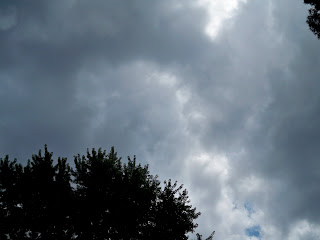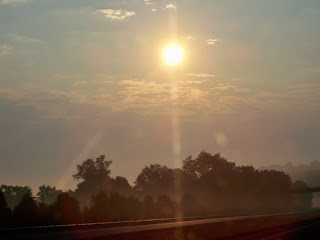Thundersnow!
It came in with a whoosh and a bang and a crackle of light. At 2 p.m. it was raining, at 3 it was glopping (gobs of slush falling from the sky) and at 4 the snow was falling sideways at two inches an hour.
Through the quick-darkening afternoon and evening we heard claps of thunder, saw lightning flash. By midnight it was over. The west-facing flanks of trees were smeared with white, as if from a wayward paintbrush. Our bamboo was bent with the weight of the heavy snow. Today it is quiet, no plows, no cars. Just the whiteness of a spent world. Until yesterday we’d had a cold, dry winter. The thundersnow made up for it.

